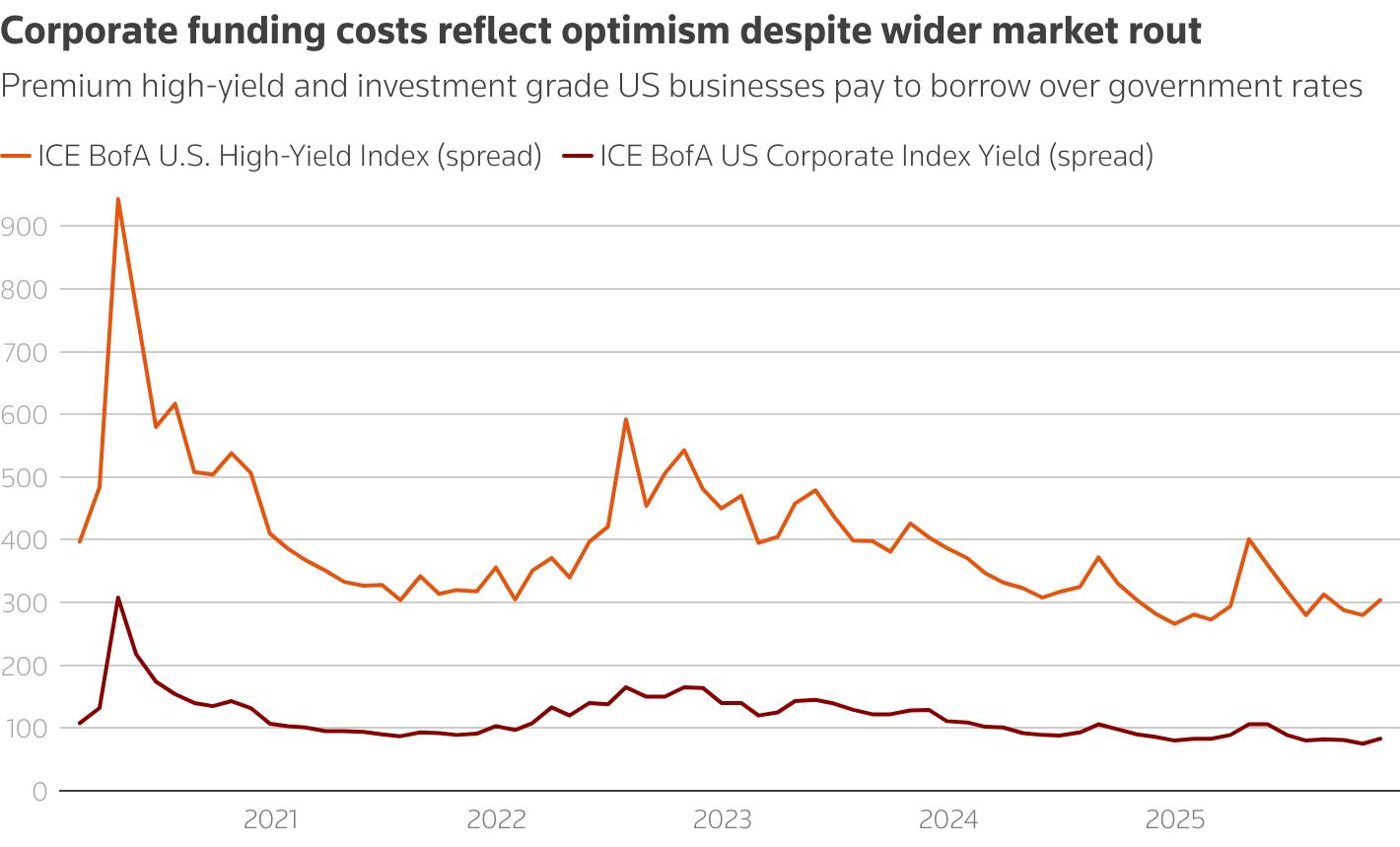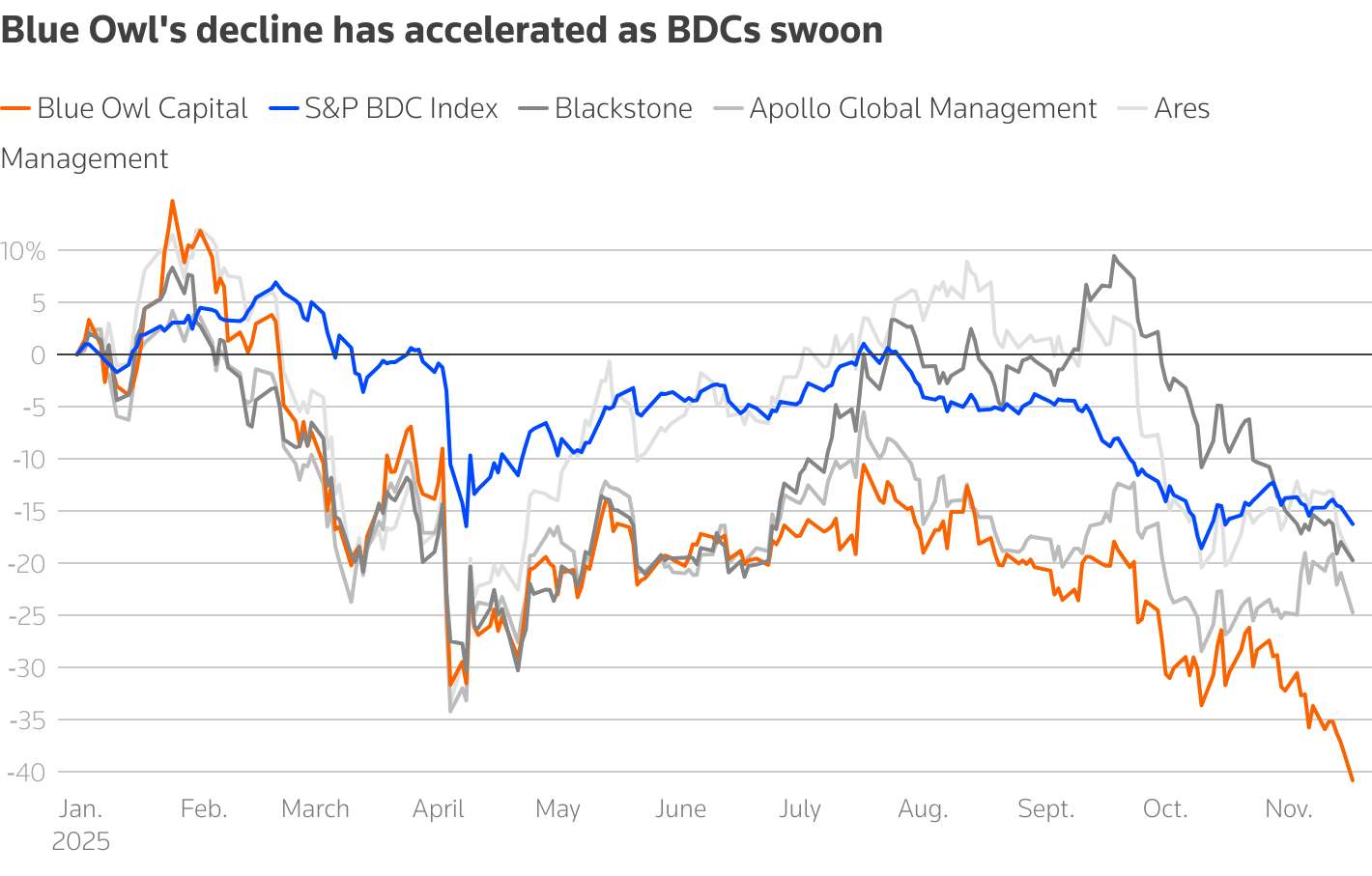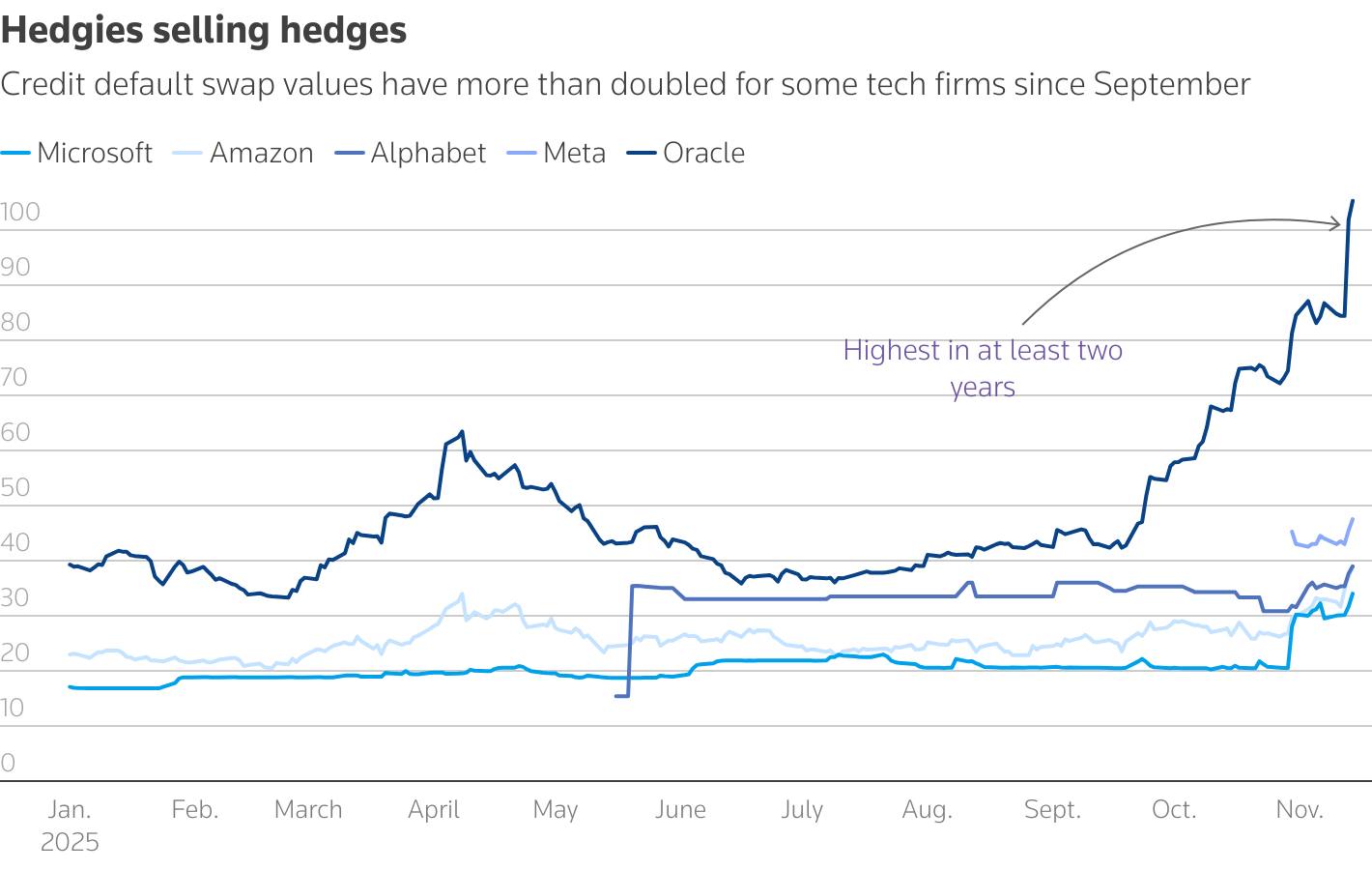A big tech borrowing bonanza and signs of strain in private credit are spooking bond market lenders to the world's top-rated businesses, in a trend that could jolt funding costs higher, hit corporate earnings and add stress to twitchy global markets.
A cross-market rout sparked by AI over-investment nerves and what delayed U.S. data might mean for monetary policy has pushed world stocks down 3% this month and knocked everything from cryptocurrency bitcoin to gold (.XAU). But investment-grade bonds, which still offer borrowers the cheapest funding costs seen in decades, have been spared.
Investors at groups managing more than $10 trillion of client assets combined, however, expressed concerns about IG debt pricing or said they were reducing exposure to top-rated bonds, with some also having sold out of or begun actively betting against the asset class.
After JPMorgan boss Jamie Dimon warned last month about "cockroaches" emerging in credit markets, tech giants began borrowing heavily to fund their rush to build AI data centres.
Alternative asset BWL.N> sent waves of anxiety through the $3 trillion private credit market by moving to limit fund withdrawals, and IG debt was still not pricing enough risk, money managers said.
"There's fear in markets, and everyone's looking for the next shoe to drop," said Brian Kloss, portfolio manager at Brandywine Global in Philadelphia, a unit of Franklin Templeton, which runs $1.2 trillion of assets, and has an overall cautious stance on credit.
That could well be IG debt, Kloss said, meaning he was "taking profits" on existing holdings.
An ICE-BofA index tracking what top-rated U.S. companies pay to borrow over governments is trading just 10 basis points (bps) above 27-year lows of 74 bps touched in early October (.MERC0A0). The equivalent so-called spread in Europe is around 84, up slightly from 75 in late October (.MERPE00).
Salman Ahmed, global head of macro and strategic asset allocation at Fidelity International, had a short position against IG debt because pricing was too rich and an economic downturn might bring a "proper blowout".
Because prices had far to fall, he added, IG credit offered the most "bang for buck" in terms of hedging strategies that would pay out if a sustained economic downturn took hold.
Premium high-yield and investment grade US businesses pay to borrow over government rates reflects optimism about economic growth and demand for debt.
FEEDBACK LOOP
Credit spreads are a leading indicator for economic growth and stock market performance because funding costs affect businesses' profits, share prices and expansion plans.
"There's a feedback loop," said John Stopford, head of multi-asset income at asset manager Ninety One, adding he had dropped his funds' credit exposure to zero in recent weeks.
Interest rates on newly issued bonds would get more expensive, he said, if cash drained out of private credit funds while an AI borrowing bonanza ramped up.
"If the cost of borrowing goes up in private credit and there is lots of new issuance coming out, borrowers are going to have to pay up," he said. "And if it's more expensive for businesses to borrow they are going to make less money."
A chart showing year-to-date share-price performance for Blue Owl versus peers and the S&P BDC Index
After $75 billion of U.S. investment grade debt issued by AI-focused Big Tech hit the market in September and October the cost of five-year credit default swaps insuring against tech group Oracle defaulting has risen 44% in a month to 87 bps, Refinitiv data showed.
Meanwhile, investors have begun moving away from private debt funds as their lending standards come under scrutiny from regulators.
INVESTORS SEE DELAYED US DATA AS RISK FOR CREDIT MARKETS
David Furey, State Street Investment Management's head of fixed income portfolio strategy, said the world's fourth-biggest asset manager was staying invested in corporate credit for now but keeping a "close eye" for signs of U.S. economic weakness. IG credit pricing, he cautioned, had "very little cushion baked in" for economic deterioration.
Credit default swap values have more than doubled since September
Jonathan Manning, credit portfolio manager at Europe's largest asset manager Amundi, said he was also "looking to lighten up a little bit" on IG credit because of high pricing and in case delayed U.S. data such as Thursday's September jobs report increased volatility in a market that has traded calmly through selloffs so far.
Clients of Russell Investments, which advises institutions stewarding more than $900 billion between them, were also turning more cautious on IG credit.
"It's not so much that this is the asset class that they are most worried about. It's the asset class that's got very expensive so the upside isn't really there anymore," said Russell's global head of fixed income and FX solutions Van Luu.
Source: reuters
























